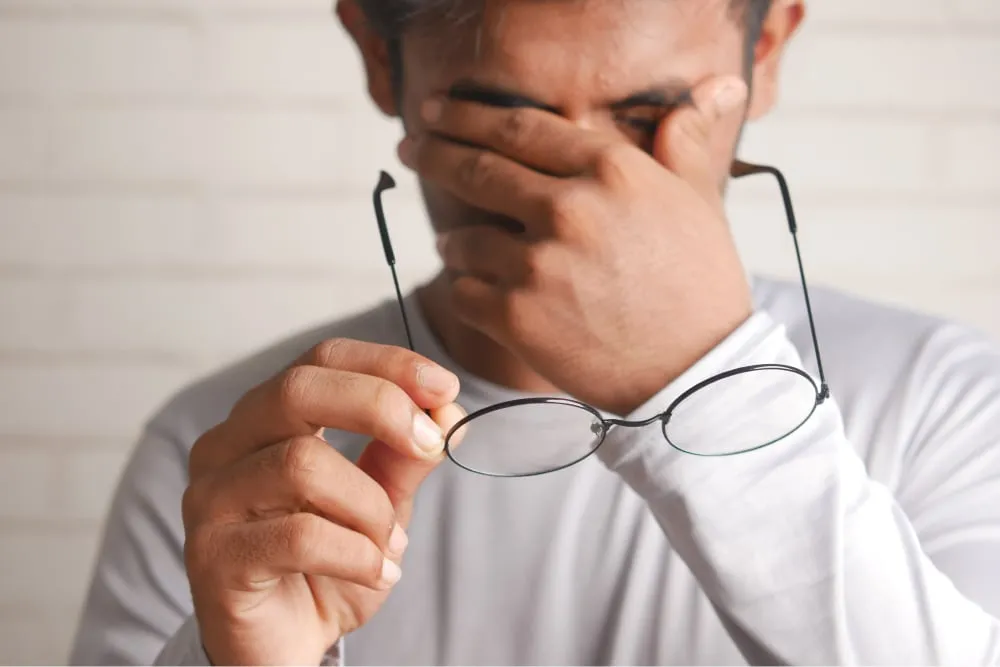What is bloating?
Bloating is a relatively regular occurrence in the gastrointestinal (GI) tract, generally leading to a distended (expanded) stomach and mild to severe abdominal pain.
Bloating is generally the result of excess intestinal gas in the GI tract. It often feels like an uncomfortable fullness or tightness in the abdomen and frequently occurs alongside acid reflux.
In general, bloating can be related to a number of issues, including:2
Bloating is very common, with up to 25% of people reporting occasional issues with the condition, and the gas usually passes on its own with time.2
However, there may be situations where bloating indicates a deeper medical issue and should be addressed with appropriate treatment. If symptoms don’t go away, get worse with time, or include additional complications like vomiting, you should seek out further care.2
What causes anorexia bloating?
The disordered eating behavior involved with anorexia nervosa tends to cause a number of GI issues, some of which can lead to bloating.
Delayed gastric emptying has long been associated with AN and other eating disorders, including bulimia nervosa (BN).3 Also called gastroparesis, the condition involves the prolonged emptying of the stomach. When this occurs, it can back up the rest of the digestive system, including any food moving through the small intestine.4
As food is passed through the intestines, it’s broken down by healthy gut bacteria, and intestinal gas is a natural byproduct of this interaction. But the longer food sits in the tract, the more it ferments, leading to more gas production—and, in many cases, instances of bloating.2
Similarly, studies have linked AN to delayed whole-gut transit, or the journey food takes along the digestive tract, from ingestion to expulsion. This has been connected directly to bloating and constipation, which can contribute to bloating.5
While more work is needed to understand why gastroparesis co-occurs so frequently with anorexia nervosa, the condition has been connected to restricted dietary intake and various nutritional deficiencies, which are hallmark symptoms of AN.6
Electrolyte imbalances caused by disordered eating patterns can also potentially lead to bloating, along with issues related to laxative misuse.9
{{link-bank-two-column}}
Other issues connected to anorexia bloating
Bloating is generally uncomfortable, and it can be painful. But unfortunately, it can have more than just physical effects for people struggling with AN and other eating disorders.
Some studies on the issue have warned that bloating may trigger the fear of weight gain for people with AN as they see their stomachs protrude.5 This could potentially lead to further food restriction or fuel other unhelpful thoughts or actions connected to the disorder.
Bloating is also a frequent symptom of refeeding in people with AN. In many cases, this can be connected not to gas build-up but to water retention, as the body shifts fluids around in an attempt to rehydrate during the refeeding process.7
Again, the danger of bloating occurring during refeeding is the potential of triggering unhelpful thoughts or behaviors related to the fear of gaining weight. Patients may also feel less inclined to eat if they feel uncomfortable from bloating.7
How to reduce bloating in anorexia recovery
While bloating can make anorexia recovery feel more difficult, there are ways to address this issue.
Choosing foods that are lower in fiber is one strategy. While it sounds counterintuitive—high-fiber foods do support healthy and frequent bowel movements—it can help reduce excess gas that may lead to bloating.10 However, if your bloating is related to constipation instead of gas, more fiber can be a helpful solution.11
Sugar-free gum and mints can be another unlikely source of bloating, thanks to the sugar substitutes commonly used in the products.11 An overabundance of fruits and vegetables can also contribute to a bloated stomach.11
If you're taking medication as part of your treatment plan, you should speak with your doctor about your concerns. Some medications may lead to bloating or other gastrointestinal problems, or your doctor may be able to recommend different medications that can help.
But the most important thing you can do is continue to eat food and snacks at regular intervals. This helps keep things in your digestive system and digestive tract moving, which can help eliminate the kind of fermentation that leads to gas and bloating.11
You might be interested in
Finding help for anorexia bloating
The best way to treat bloating when it’s connected to anorexia nervosa is by addressing AN itself.
Research has shown that delayed gastric emptying and other upper GI issues related to AN will subside on their own with healthy weight gain.3 Adequate nutrition can help balance out any vitamin deficiencies that may contribute to the problem.
And for those already in treatment, there are additional options to help reduce bloating in anorexia recovery.
Studies show that the right mixture of probiotics—substances that help support healthy digestive enzymes—can reduce bloating, though these findings have been inconsistent.3 It may be beneficial to discuss this option with your doctor before starting a probiotic regimen.
Other natural approaches to alleviate bloating include abdominal massage, warm baths, and taking peppermint capsules, with the herb known to soothe the intestinal tract.8
Finding help for anorexia nervosa
Help with bloating is far from the only reason why it’s a good idea to seek out treatment for anorexia nervosa. The condition is dangerous and can be deadly if left untreated.
If you or a loved one are struggling with AN or another eating disorder, it’s important to seek out help. Your primary care physician or therapist can be a great place to start, with these experts able to help you secure an official diagnosis or determine your next best steps.
At Within Health, we also strive to help. Our multifaceted eating disorder treatment team can address the many physical and psychological issues associated with AN. Our unique program allows you to follow their tailored treatment plan from the comfort of your own home.
Battling anorexia nervosa may feel overwhelming, but it’s important to remember that recovery is always possible.
Get help for anorexia nervosa
Help with bloating is far from the only reason why it’s a good idea to seek out treatment for anorexia nervosa. The condition is dangerous, and can be deadly if left untreated.
If you or a loved one are struggling with AN or another eating disorder, it’s important to seek out help. Your primary care physician or therapist can be a great place to start, with these experts able to help you secure an official diagnosis or determine your next best steps.
At Within Health, we also strive to help. Our multifaceted eating disorder treatment team can help address the many physical and psychological issues associated with AN. And our unique program allows you to follow their tailored treatment plan, all from the comfort of your own home.
Battling anorexia nervosa may feel overwhelming, but it’s important to remember that recovery is always possible.
Call (866) 293-0041 








































